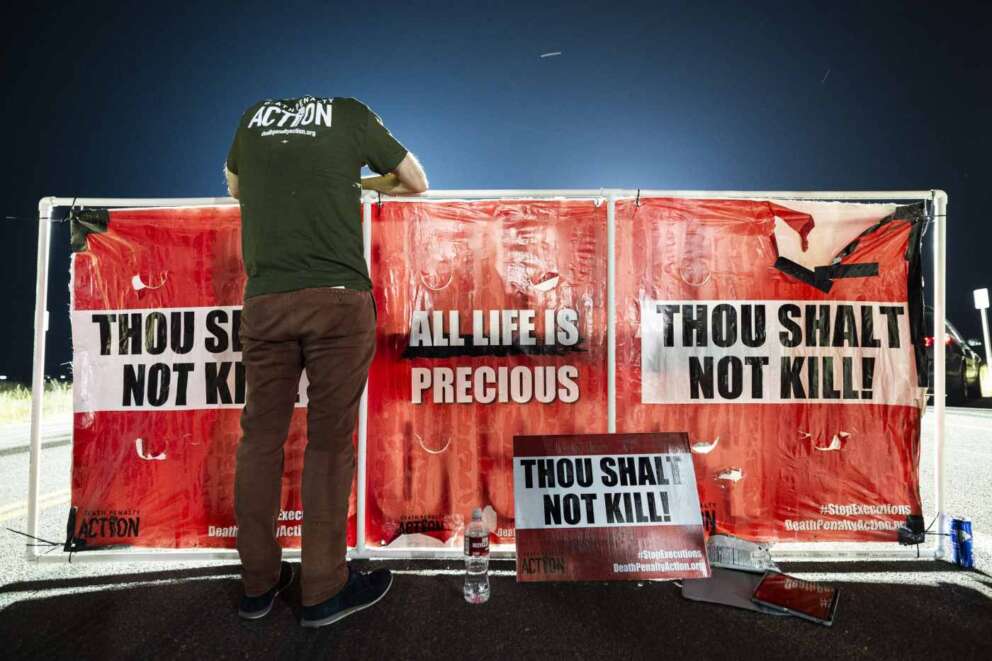Who are the US executioners, the secrets of capital executions in the United States

The article of the law professor
Executioners fined, warned, with suspended or unlicensed licenses. A catalog of horrors put together by law professor Corinna Barrett Lain

Corinna Barrett Lain paid for her studies by serving for a few years as a non-commissioned officer in the army. She is now a law professor at some important US universities, and very active against the death penalty. In recent weeks she published a phenomenal article in which she reconstructs eight years of efforts to "decipher" the secrets surrounding executions. The article should be read in its entirety ( it is on the Nessuno tocchi Caino website ), and what follows is a brutally shortened version.
From 1995 to 2006, 54 executions in Missouri were carried out by Dr. Alan Doerhoff. He didn’t inject the syringe—incredibly, that job was done by non-medical prison guards—but he did pretty much everything else. “No one will ever do as many executions as I have,” he boasted. His identity was revealed when a lawyer for a death row inmate checked the prison’s chemical dispensary records and discovered that previous executions had used 2.5 grams of anesthetic to sedate the inmate before killing him, when the prescribed dose was 5 grams. The dying inmate sued. Officials initially told the court there was a mistake in the records, but later admitted they were correct. Troubled by the discovery, the court allowed the inmate’s lawyers to summon the “ executioner in chief.” In a secret hearing, he testified under oath that he had trouble mixing the drugs. “ I’m dyslexic. I sometimes mix up numbers, so it’s not unusual for me to make mistakes. We’re actually still improvising at the moment.”
Missouri stood firm, telling the court that it had confidence in the competence of its “ chief executioner” (whose name remained secret) and intended to continue using him for future executions. But the court rejected the state’s assurances, writing that it was “gravely concerned that a doctor, solely responsible for properly mixing the drugs that will cause inmates’ death, suffers from a disorder that causes him to be confused with numbers.” The state appealed, but shortly thereafter, in January 2008, investigative journalism uncovered Doerhoff’s identity, revealing another shocking fact: Before he began carrying out executions, each of which earned him a $20,000 paycheck, Doerhoff had been sued for medical malpractice more than 20 times, had been fired from two hospitals, and had faced several official sanctions from the medical board. After these discoveries (and the further discovery that the “prior record” was well known to those who had hired him) the court ordered that the man could not continue in his position. No longer able to “work” in Missouri, Doerhoff joined the staff of a local hair removal company, and worked as an executioner for the federal government, and for at least one other state, Arizona.
Arizona was aware of the Missouri ruling and the facts behind it. Nevertheless, it hired Doerhoff, who carried out an execution for the state. When prosecutors discovered his involvement, the Arizona inmates filed a lawsuit, which was settled two years later with tougher selection rules. But during the litigation, the inmates’ lawyers discovered that Doerhoff was not the only “executioner” who should not have been carrying out executions. The “ No. 3” member of the medical team was a former nurse whose license had been suspended. At the time of the litigation, his occupation was managing an appliance company in another state. The identity of Member No. 3 was not disclosed, but the court noted that he had been arrested multiple times, “including three times in a 10-day period for driving under the influence.”
In 2011, Arizona was sued again for failing to live up to its commitment to better screening. The prison warden admitted to carrying out five executions with full knowledge that team member No. 4, a prison guard who had previously served in the Army Medical Service, had no medical license, and officials had discounted his criminal history, which included drunk driving, a drunken disorderly conduct, and writing a bad check. No. 4 later said the only check he had been subjected to was a phone call from the warden asking if he knew how to administer an IV and if he would have any problems doing so for an execution. He was asked no other questions, and at the time, he had not administered an IV in 15 years. This is where I run out of space for this horror story.
l'Unità





